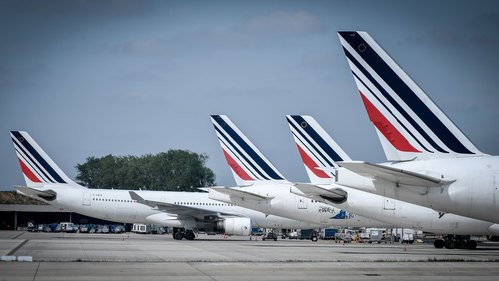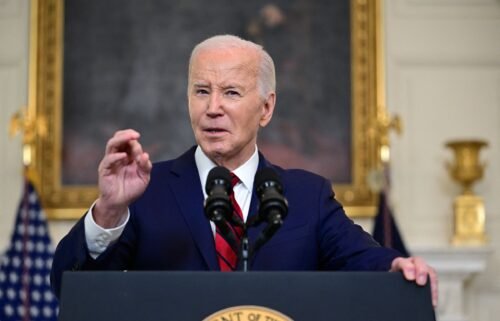Big European companies ban business travel as coronavirus outbreak escalates

Big European companies have started to ban or restrict business travel for hundreds of thousands of employees as the coronavirus outbreak accelerates.
The restrictions are piling pressure on airlines and the broader travel industry, which faces a monthly hit of more than $46 billion from the coronavirus, according to the Global Business Travel Association, a trade body based in Washington, D.C.
Nestlé, the world’s largest food company, said Thursday it has asked all 291,000 of its employees not to travel internationally for business until the middle of March. “Domestic travel should be replaced by alternative methods of communication where possible,” a company spokesperson added.
A spokesperson for L’Oreal said all business trips have been suspended until the end of March “as a precautionary measure.”
Consumer goods giant Unilever said it has been restricting travel to and from northern Italy and other affected countries. Beyond that the guidance is “business-critical travel only,” a company spokesperson said.
Between them, Nestlé, L’Oreal and Unilever employ about 532,000 people worldwide.
Italian bank UniCredit and Amsterdam-based tech group Prosus have also implemented company-wide travel bans to reduce the risk of employees catching the coronavirus. US agricultural company Cargill also said it has banned all non-essential business travel.
If more companies do the same, the pressure will build on an aviation industry that is already reeling from a slump in demand for passenger and cargo traffic with Asia.
Major European airlines are already taking steps to cut costs. Lufthansa and Air France-KLM announced this week that they are offering employees unpaid leave and pausing or reducing hiring.
IAG, the parent company of British Airways, said Friday that it could not give accurate profit guidance for 2020 “given the ongoing uncertainty of the potential impact and duration” of the coronavirus. Its stock was trading more than 8% weaker on Friday morning in London, taking losses this week to 24%.
In a letter seen by CNN Business, Air France-KLM CFO Erik Swelheim told managers that non-critical investments, such as refurbishment of buildings and hangars, will be delayed. Spend on advertising and IT will be reduced, he said.
The impact on the airline’s revenue from the coronavirus “will be very significant and will only partly be mitigated by lower costs and a lower fuel price,” Swelheim said. “We will have to take immediate measures to safeguard our operating income, in order to protect our necessary investment program,” he added. The company’s share price is off more than 23% this week.
Lufthansa said flight attendant training courses planned for April would be canceled. Participants already on courses will not be hired in the short term. The airline, which has grounded 13 aircraft due to a decline in demand, said it is considering expanding part-time work options. The stock was down 5% in Germany on Friday, extending losses this week to 21%.
European economy
There are also signs that flights within Europe are being disrupted.
British Airways said it is reducing the number of flights between London and Milan’s Linate airport over the next two weeks due to falling demand. Milan is located in the northern region of Lombardy, where Italy has recorded most of its coronavirus cases.
The airline will also reduce its daily service to Seoul to three to four times weekly starting on March 13, adding to existing reductions on other Asian routes and the ongoing suspension of flights to mainland China.
Europe’s largest low-cost carrier, Ryanair, which flies to more than 20 Italian destinations including Milan, said Thursday that all its flights are operating as normal.
Airport operators are also feeling the pain. Fraport, which owns Frankfurt airport, said the virus outbreak is having a “major impact” on “all business areas,” including flight operations, ground handling, cargo and retail. The international aviation hub is pausing non-essential hiring and offering employees voluntary unpaid leave or reduced working hours.
Working from home
While travel restrictions are becoming commonplace, there is little sign yet of a widespread drive to encourage home working in Europe.
Chevron’s employees in its London Canary Wharf office, where it employs 300 people, have been working from home since Tuesday, after an employee experiencing flu-like symptoms was tested for coronavirus. But big global banks such as HSBC and Barclays, which have their head offices nearby, told CNN Business that staff are still coming in to the office.
UniCredit has encouraged employees located in the towns “worst affected” to rely on remote working where possible.
Nestlé said it has asked employees who have traveled to “affected countries,” including Italy, France, Germany, Spain, Canada, the United Kingdom and the United States, in the last two weeks to work from home for 14 days “where possible.”
By contrast, in an attempt to limit social contact and slow the spread of the virus, millions of employees in Asia have been working from home for weeks since the outbreak accelerated in China late last month.
– Eoin McSweeney contributed reporting.




